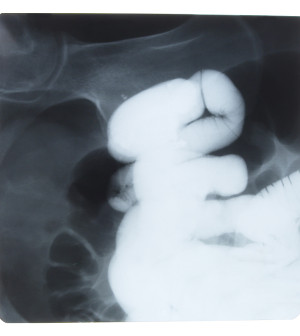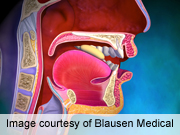- Could Your Grocery Store Meat Be Causing Recurring UTIs?
- Are You Making This Expensive Thermostat Error This Winter?
- Recognizing the Signs of Hypothyroidism
- 10 Strategies to Overcome Insomnia
- Could Artificial Sweeteners Be Aging the Brain Faster?
- Techniques for Soothing Your Nervous System
- Does the Water in Your House Smell Funny? Here’s Why
- Can a Daily Dose of Apple Cider Vinegar Actually Aid Weight Loss?
- 6 Health Beverages That Can Actually Spike Your Blood Sugar
- Treatment Options for Social Anxiety Disorder
Antacids May Improve Head and Neck Cancer Survival


Using antacids to control acid reflux may improve head and neck cancer patients’ chances of survival, a new study suggests.
The researchers examined the effects that two types of antacids — proton pump inhibitors and histamine 2 blockers — had on head and neck cancer patients. More than two-thirds of the nearly 600 patients in the study took one or both types of the antacids after their cancer diagnosis.
Acid reflux — commonly known as heartburn — is a common side effect of chemotherapy or radiation treatment, according to the researchers. Proton pump inhibitors include drugs such as Prilosec, Nexium and Prevacid, while histamine 2 blockers include drugs such as Tagamet, Zantac and Pepcid.
Compared to patients who didn’t take antacids, those who took proton pump inhibitors had a 45 percent lower risk of death, according to the researchers. They also found that those who took histamine 2 blockers had a 33 percent lower risk of death.
The study is published in the December issue of the journal Cancer Prevention Research.
“We had suspicions that these medications somehow had a favorable impact on patient outcomes. This led us to review our large cohort of patients and screen them for common medications, focusing on antacids. In fact, our study did show that people taking antacids are doing better,” study author Dr. Silvana Papagerakis, research assistant professor of otolaryngology–head and neck surgery at the University of Michigan Medical School, said in a university news release.
It’s not clear why antacids may improve survival. But, the researchers have started looking for answers to that question.
“Currently, patients might be on and off of this medication according to their symptoms of acid reflux. We believe this medication can also be beneficial at stopping cancer progression. Perhaps longer duration of treatments may have significant effect in terms of outcome survival,” Papagerakis said.
“What this study makes clear is these medications may be more beneficial to the patients than just controlling side effects,” Papagerakis added.
The researchers also want to investigate if the use of antacids by people with reflux disease or with precancerous lesions might reduce their risk of developing head and neck cancer.
More information
The U.S. National Cancer Institute has more about head and neck cancers.
Source: HealthDay
Copyright © 2026 HealthDay. All rights reserved.










